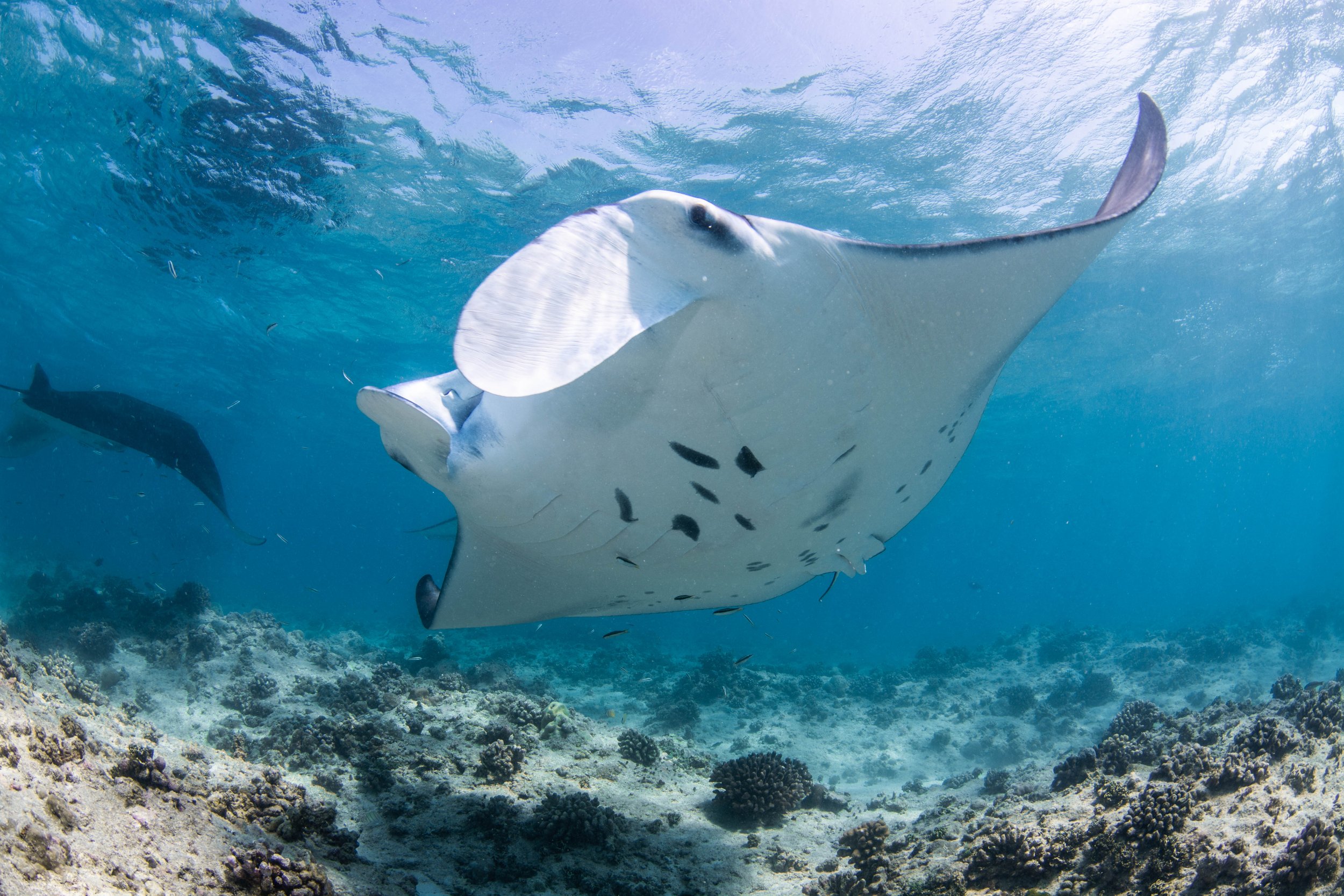
RAHVESHI PROGRAMME priorities
The rich marine ecosystems of the Maldives provide key economic services to the country with tourism and fisheries representing almost 50% of GDP. However, climate impacts such as sea-level rise, environmental degradation, and coral bleaching, coupled with increasing development, are threatening these ecosystems putting the local economy and the unique biodiversity of the archipelago, including all manta and devil ray species, at risk.
Tourism is the largest industry in the Maldives, with over 1.6 million visitors in 2022. Resorts and businesses that benefit from this tourism offer an important source of income for NGOs and scientists working to protect the vulnerable marine life and ecosystems of this island nation. The MMCP (formerly called the Maldivian Manta Ray Project) has been successfully running since 2005 thanks to invaluable partnerships with several luxury resorts which support us financially, providing our MMCP staff with accommodation, salaries, access to the field and to labs, and the opportunity to engage tourists with marine issues.
However, we are now ambitious to develop new programmes for our MMCP network which are based instead on local islands. These programmes will be supported by our RahVeshi Programme and will prioritise:
Providing more training, mentorship, resources, paid internships, and job opportunities for local people in marine research, education and conservation.
Gaining consistent access to significant manta ray study sites in remote parts of the archipelago, away from tourism.
Supporting more grassroots conservation initiatives and helping small island communities to advocate against invasive and unsustainable development in their regions.

RAHVESHI PROGRAMME LOCATIONS
ADDU ATOLL
This Atoll boasts the most diverse coral reef ecosystem in the Maldives, provides critical roosting grounds and foraging habitats for migratory birds, and is home to a small and highly resident population of reef manta rays, but is also severely threatened by sea level rise and vulnerable to invasive species. As a result, Addu Atoll was added to the list of biosphere reserves by the United Nations Educational, Scientific and Cultural Organisation (UNESCO) in October 2020 (along with Fuvahmulah Atoll). Despite this, the Maldives Government has recently announced plans to implement a large-scale project involving the reclamation of islands and road development in Addu Atoll which will have long-term, irreversible impacts on the local environment. The Addu RahVeshi Programme is being established to lead an in-depth assessment of the current trends and health status of this regional manta population.
Reef manta ray at Maa Kandu, Addu
Goldenback fusiliers on the vast coral reef gardens in Addu
Makunudhoo Lagoon
Makunudhoo community member before her first swim with manta rays
Makunudhoo Atoll
During an exploratory expedition in 2021, our researchers visited the far northern atoll of Makunudhoo for the first time and learned of large seasonal aggregations of reef manta rays in the region. In March 2022 we returned to initiate a one-month pilot programme, during which we not only gained key insights into this previously unstudied manta ray population but also formed a strong bond with the people of Makunudhoo, many of whom assisted with our research and participated in our educational outreach. Poised for tourism development, including a domestic airport planned on one of its uninhabited islands, the community welcomes the economic benefits this will bring but is mindful that without effective management, these advances will have a devastating impact on their natural resources. The Makunudhoo RahVeshi Programme is working to collect data to build a biodiversity census, identify locations of significant importance in need of protection, and prepare for tourism advances in the region.
Fuvahmulah Atoll
This Atoll is home to an incredible array of marine megafauna, including whale sharks, thresher and tiger sharks, ocean sunfish, and a recently discovered, substantial population of oceanic manta rays. We are yet to identify what the drivers are for the large seasonal aggregation of manta rays that occurs each spring. The population appears to be highly transient, and nothing is known about these ray’s movements outside of the aggregation, but its proximity to Sri Lanka (one of the world’s largest manta fisheries) is an urgent concern. We established the Maldives Oceanic Manta Ray Project on this local island in 2018, conducting research and delivering our Marine Education Programme annually during the short manta season. With support from the RahVeshi Programme, this programme can continue to uncover vital knowledge needed to aid the government in the creation of an effective management plan for this UNESCO Biosphere Reserve, whilst laying the foundations for sustainable tourism.
Fuvahmulah from the air
Oceanic manta rays of Fuvahmulah Atoll

WAYS TO SUPPORT
Their remote locations and separation from the tourism industry are what make these RahVeshi Programmes so important, but also mean securing on-going support is more challenging than in our resort-based programmes. Whether you wish to offer support as an individual or through your business, there are several ways in which you can do this:
DONATE: Any donation that you can offer to the RahVeshi Programme, whether big or small, will be greatly appreciated and help us to keep these programmes growing from strength to strength.
SPONSOR: Provide an annual or regular donation to the RahVeshi Programme and make a lasting difference in the Maldives. We will design a tailored sponsorship package to best benefit your business – download our Corporate Sponsorship Brochure to find out more.
GIFT EQUIPMENT: Lack of vital equipment and resources can be a barrier to local people who wish to get involved with marine research and conservation. If you have a well-functioning laptop, tablet, camera with underwater housing, or snorkel equipment, it might be of use to the RahVeshi Programme team. Please contact us to find out more.
CORPORATE GIVING: Donations to the RahVeshi Programme show your dedication to CSR and are tax-deductible. Businesses who donate to the RahVeshi Programme via the Manta Trust will receive a donation certificate.

Photos from the field















































